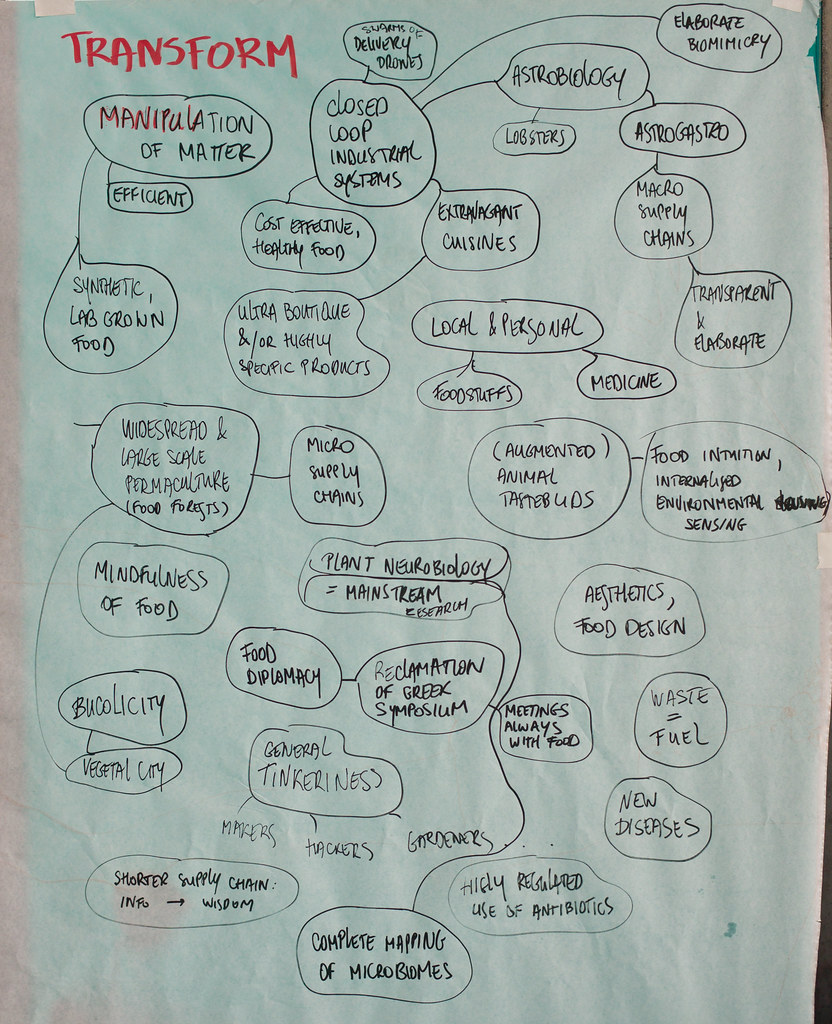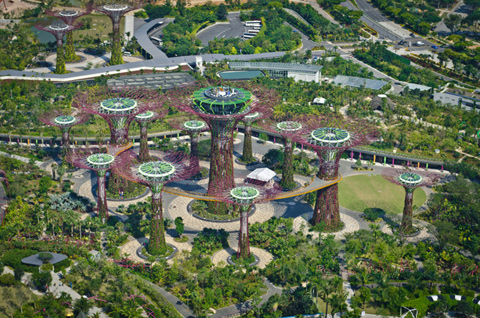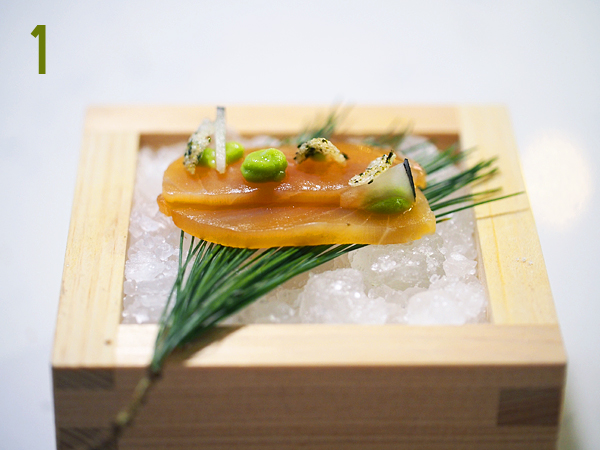Future Fabulators
Table of Contents
Transform
(one of four food scenarios on the topic of food futures)
Toast from Transform
Good evening to you all!
It looks like they saved me for last along with your dessert. I'm honoured and delighted to bring you some sweetness to end your meal.
I come from a time where an optimistic 'can-do' attitude prevails. Once upon a time we were faced with the same problems as you and the others you met tonight: environmental degradation, economic crises, cultural corruption and many of the other challenges that you probably know much more intimately than I. Some time ago, groups of people that you probably know as 'maker cults' in your time, joined with social and speculative designers - not necessarily to solve problems, but to experiment with how things could be otherwise. While they were usually considered fringe communities to begin with, they gradually spread one group at a time and before you know it a significant cultural shift had occurred. Looking back it was a gradual change as more people saw the world as an interconnected web of relationships. This systemic, or holistic worldview is more or less omnipresent now, visible in our society, technology and importantly our food.
Just like the other stories you've heard, mine begins and ends with food. But there are important differences. While we rely on industrial food production, this happens in closed loops, with minimal threat to the natural environment. We became so proficient in manipulating matter that the old pressures on natural resources have been dramatically reduced. Some of our food is wild, some of it is lab grown. But the majority of our daily diet consists of food grown in our Bucolicities, or vegetal cities. Bucolicities are metropolis-sized multi-level food forests in which we live and work.
After the successful integration of permaculture design and urban planning to create micro-supply chains, most citizens can subsist on what you would have called “freeganism” – collecting fresh fruits and vegetables from edible plants lining bike-paths and canopy walks. Almost everyone is a grower, gardener, cook, DIY biologist or tinkerer of some kind. We thrive in a social network where everyone is both a producer and consumer, and where we prefer to share information and resources as openly and transparently as possible. A wide range of cost-effective healthy food is available to all, but we still like our extravagant, ultra-boutique items, such as edible rocks cultivated on the moon, collected by orbital drones and delivered to our kitchen windows. Astrogastronomy is a rapidly emerging fashion…
As most food production has shifted to labs and cities, the countryside has become filled with sites for regeneration of various eco-systems. While agriculture once focused on food as fuel, our culture sees food as a mutation agent. We are noticing new types of skin-cells that have migrated from our lab-grown plants and enable us to detect environmental toxins. Soon we might even begin to photosynthesize. We are aware of the dangers involved in such close entanglement of technology and biology and we encourage healthy debate with strong moral foundations. Scientific research is beginning to move towards something one of your writers called Thalience – a post science focusing on communication and co-habitation with natural and artificial sentiences.
To end, I'd like to invite you to join me at the dessert table, and to share with me some of your hopes and visions of a world where the man-made and wildly-grown are no longer at odds and where the intertwingling of human creativity and the abundance of nature can feed us all. When you move to the dessert table, please take your pens with you. Please use the table to write down some highlights of your discussions and your visions for the future of food.
I leave you tonight with a toast to openness and transformation of food systems, to closing industrial loops and finally, to food, well-being, the environment and your health! As we say my part of the world: Na zdravlje!
Transform Scenario
Disruptive technological progress led to the Closed-loop Industrial Revolution. Humanity is becoming proficient in manipulation of matter, with the emergence of hyper-efficient technologies; computers can now be made from a handful of soil (software takes a bit more resources) and food can be grown synthetically. Not only the creation, but also breaking down of materials lead to substantial waste reduction and eventually to the appearance economically and environmentally viable closed-loop industrial systems.
Nearly every industry now works in closed loops and the pressure on natural resources has subsequently reduced. This led to the emergence of large-scale rewilding and to the blossoming of trans-local permaculture-driven design. Bucolicities, or vegetal cities are beginning to appear, built and grown within food forests. Bucolicities thrive on freegan micro-supply chains as it is now possible to collect fresh fruits and vegetables from the trees lining bike-paths or canopy walkways. The rural population dwindles as the countryside is turned into sites for regeneration of diverse eco-systems.
A wide range of cost-effective healthy food is now available, alongside extravagant, ultra-boutique and highly specialized items made possible in a widely distributed culture of general tinkeriness (almost everyone’s a maker, hacker, grower, brewer or tinkerer of some kind). For instance, more and more nano-breweries are sprouting, selling less than ten bottles a year from hyper-local geographical “appelations”. Personalised supply chains are common, often using swarms of drones to fly across cities home-delivering superfood dinners. While most foodstuffs and medicine is grown and consumed locally, the progress in closed-loop production systems re-awakened the old dream of space travel and colonisation. Astrogastronomy (aka “astrogastro”) is quickly developing, with an emphasis on food spiced with xeno-elements. Beyond planetary macro-scale supply chains focus on epicurean “moon food’ delivered through convoluted, but fully transparent systems.
In this food and health conscious society wellness and design are closely linked together. Food design became a valuable creative expertise in closed loop nutrition. Aestheticised designer foods evolved into technologically enhanced, bio-inspired forms, shapes and colours, micronutrients that carry customised drugs allowing humans to enhance our senses. Food is not only seen as fuel for our bodies, but as mutation agents able to adapt our anatomies. Dermatologists noticed the emergence of harmless cutaneous signs when the level of some toxins were higher than average. Some animals refuse instinctively food polluted with open-loop industry toxic waste, and researchers are currently investigating what seems to be new tastebuds which appeared on their tongues. Next generation swarm of delivery drones display new colors and shapes inspired by south-American rainforest birds.
Human health is seen as intrinsically linked to health of our environment. The use of antibiotics has become highly regulated in closed-loop food production. While known illnesses are well managed, society is frequently shaken by the emergence of new diseases. There are many unforeseen effects of producing so much of our food in hermetically enclosed technospheres. Reaching the limits of Closed Loop industry, scientific research has moved to previously marginalised domains such as species cohabitation and communication. Northern Europe is known for the excellence of its research in Plant Neurobiology (especially after the Nobel Prize was awarded to the Urban Plant Well-Being Research Group from Edinburgh University). Inverness University was also in the spotlight after publishing the final maps of the Human Microbiome Project. Globally, science education overcome a major shift, allowing shorter “supply chains” from information to wisdom.
Transform dishes
This scenario was translated into one of the courses in a tasting menu. The transform scenario was served as a dessert:
- Absinthe Truffle
- Bubblegum Panna Cotta
The complete food futures tasting dinner can be found on the latelab menu
Notes






